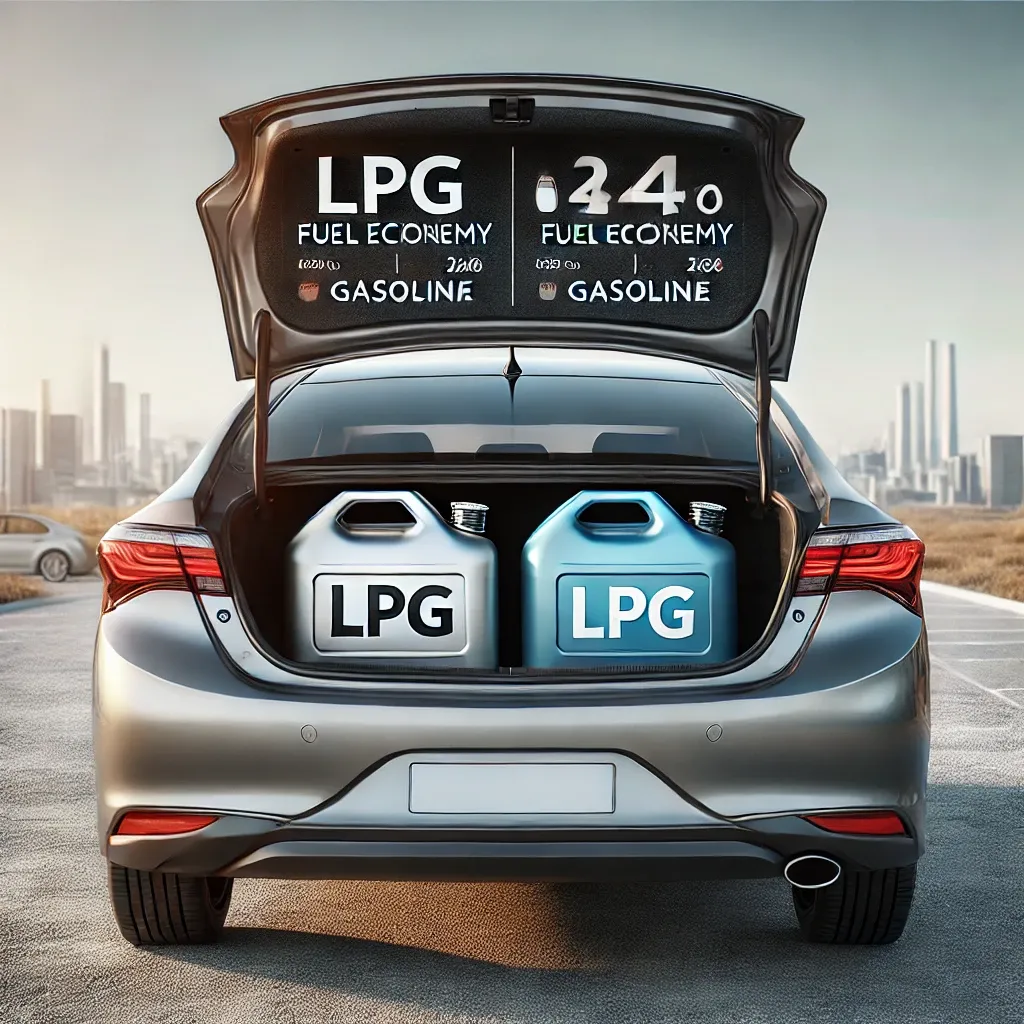Have you ever wondered how LPG compares to gasoline in terms of fuel economy? Does switching to LPG make a significant difference in your fuel expenses? Discover the key differences between LPG and gasoline fuel economy, and explore how using LPG could save you money and reduce emissions.
LPG Gasoline Fuel Economy
When it comes to fuel efficiency, many vehicle owners are constantly on the lookout for ways to reduce fuel costs and improve the environmental footprint of their driving. One option gaining attention is LPG (Liquefied Petroleum Gas), an alternative to gasoline. In this section, we’ll explore what LPG is, how it impacts fuel economy, and whether it’s a viable option for car owners looking to save money on fuel.
What is LPG?
LPG, or Liquefied Petroleum Gas, is a mixture of propane and butane that can be used as an alternative to traditional gasoline or diesel fuels. It’s commonly used in both domestic heating and as a fuel for vehicles. As an alternative fuel, LPG offers several benefits over conventional gasoline, including cleaner emissions and cost savings.
Fuel Economy of LPG vs Gasoline
Fuel economy is often measured in terms of miles per gallon (MPG). While gasoline-powered vehicles typically offer higher MPG, LPG-powered vehicles tend to have lower fuel economy in terms of distance per gallon. However, LPG is generally cheaper than gasoline, which means that even with a lower fuel economy, the overall cost of fueling a vehicle can be reduced significantly.
Key Advantages of LPG Fuel Economy:
-
Lower Fuel Costs: LPG is typically cheaper than gasoline. In countries where LPG infrastructure is well-established, this can translate to significant savings at the pump.
-
Reduced Emissions: LPG produces fewer greenhouse gases than gasoline, making it an eco-friendly alternative.
-
Less Engine Wear: LPG combustion produces fewer carbon deposits, leading to less engine wear and tear over time.
Practical Example
For example, let’s say you own a car that averages 25 MPG on gasoline and 20 MPG on LPG. Even though the LPG vehicle uses more fuel per mile, the lower cost per gallon of LPG might make the switch economically favorable. Additionally, the cleaner burn means less maintenance and potentially longer engine life.
Learn more about LPG fuel economy
LPG Gasoline Fuel Economy Comparison
If you’re considering switching to LPG for your vehicle, you might wonder how the fuel economy of LPG stacks up against gasoline. In this section, we’ll compare the two fuels in terms of cost-effectiveness, energy density, and overall driving experience.
Cost Comparison: LPG vs Gasoline
The fuel cost is the primary factor when comparing LPG to gasoline. While LPG has a lower energy density than gasoline, it is still cheaper in most regions. This price difference means that for a vehicle running on LPG, you may pay less per mile traveled.
-
Cost per Liter/Gallon: LPG is typically 30-50% cheaper than gasoline in many countries, making it an attractive option for high-mileage drivers.
-
Fuel Efficiency Loss: Despite the cost savings, LPG vehicles generally consume more fuel by volume compared to gasoline vehicles due to the lower energy content of LPG.
Energy Density: How Does LPG Compare to Gasoline?
Energy density refers to the amount of energy contained in a given volume of fuel. Gasoline has a higher energy density, which is why vehicles running on gasoline generally travel farther on a single gallon.
-
Gasoline: Approximately 33.6 MJ per liter.
-
LPG: Approximately 26.7 MJ per liter.
This means that LPG offers fewer kilometers per liter than gasoline, but the lower fuel cost can still result in overall savings.
Vehicle Performance and Efficiency
While LPG may not provide the same level of performance as gasoline, many LPG vehicles are modified to run efficiently on this alternative fuel. The engine’s performance can remain comparable to gasoline, but fuel consumption may increase slightly. However, considering the savings at the pump, this trade-off might be worth it for some drivers.
Check the LPG vs Gasoline comparison tool
LPG Fuel Economy via Gasoline
Exploring the concept of “LPG fuel economy via gasoline” involves understanding how LPG functions as a substitute fuel and the changes a vehicle undergoes when switching from gasoline to LPG.
Conversion of Gasoline Engine to LPG
For a vehicle to run on LPG, a conversion kit is typically required. This kit includes a gas tank, LPG fuel injectors, and other modifications to the vehicle’s engine. While the installation of such kits can have an upfront cost, the long-term savings on fuel may justify the expense.
-
Conversion Costs: On average, converting a gasoline car to LPG can cost between $1,000 to $3,000. However, the savings in fuel costs can help recoup this investment over time.
-
Fuel Economy Impact: Once converted, the vehicle will use LPG, but the fuel economy in terms of distance per liter will decrease, as mentioned earlier. However, because of the lower price of LPG, the overall cost per kilometer can still be lower than gasoline.
Performance After Conversion
After the conversion, many vehicle owners report smooth operation, with only minor differences in engine performance. While LPG engines may require more frequent maintenance and tune-ups, the cleaner burn and reduced emissions are significant advantages over gasoline-powered vehicles.
-
Maintenance Needs: LPG engines have fewer carbon deposits, which may lead to less frequent maintenance, such as oil changes.
-
Fuel Savings: While LPG vehicles may have a slightly higher fuel consumption per liter, the price difference typically makes up for this, especially in regions with favorable LPG pricing.
Practical Case Study
Consider a sedan that originally achieves 30 MPG with gasoline. After conversion to LPG, it might drop to 25 MPG. However, if LPG is priced at $2 per gallon and gasoline is priced at $3 per gallon, the cost per mile for LPG would still be significantly lower.
Find more about LPG conversion costs
Conclusion
Switching from gasoline to LPG can provide notable advantages, including reduced fuel costs and cleaner emissions. However, the fuel economy of LPG typically lags behind gasoline in terms of distance per gallon, primarily due to its lower energy density. Yet, the cost savings from LPG make it a compelling option for many drivers, especially in countries with well-established LPG infrastructure. By considering factors such as conversion costs, maintenance, and local LPG pricing, drivers can make informed decisions about whether switching to LPG is a worthwhile investment.
In the end, it’s clear that while LPG may not always offer the same performance in terms of miles per gallon as gasoline, it presents a greener, more cost-effective alternative for many. Whether for personal savings or environmental reasons, LPG could be the right choice for your next vehicle upgrade.






